BA in Hospitality Management
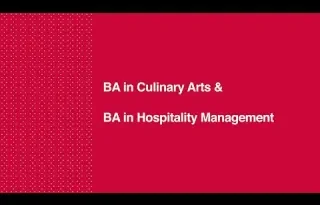
Search to find a different course
Course Overview
This course helps students develop the skills and specialist knowledge of the hospitality industry that they will need to succeed. The modern hospitality industry requires agile critical thinkers to find solutions in this fast-paced industry. Students will focus on creating exceptional guest experiences while ensuring smooth operations and profitability. They will learn to skillfully manage customer service, staff training, bar management, and hotel operations.
What makes this course different
Work Placement
Students undertake a semester-long work placement in Year 2, giving them a much broader experience for both their soft skills and technical skills. Students can participate in this work placement in Ireland or destinations like Australia, USA or Canada.
Additional Certifications
Students will have the opportunity to achieve additional micro-credentials such as Google Digital Garage, CHIA (Certificate in Hotel Industry Analytics) and a Food Safety Certification.
Understanding the Industry
Hospitality is one of the world’s fastest-growing industries and offers excellent opportunities globally. It is an exciting and diverse field that combines the art of hospitality with the principles of business management. It encompasses a range of sectors such as hotels, resorts, restaurants, event venues, and more. The industry thrives on the principles of excellent service, attention to detail, and creating a welcoming environment for guests. It offers a dynamic and rewarding career path that blends the passion for hospitality with the skills of effective business management.
Career Opportunities
Future Careers:
- Conference and Banqueting Operations and Management
- Restaurant and Bar Operations/Management
- Reception / Front Office
- Revenue & Guest Relations
- Digital Media Management
In these areas:
- Hospitality Industry
- Marketing
- Entertainment & Leisure Industry
- Tourist Industry
Graduates work at
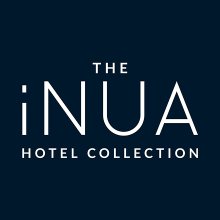
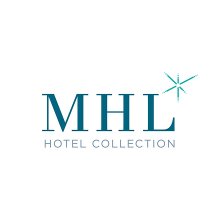
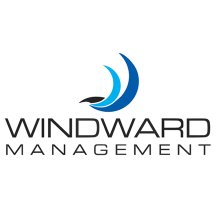
Course Delivery and Modules
A student-centred approach to learning is adopted whereby learners engage in tasks they are likely to encounter in the real world; combining traditional methods with a blended approach (online) examples include group work, role play, case studies, practical tasks, guest lectures, site visits, and problem-based learning.
In addition, software packages are also used to introduce flexible and technology learning, these include Microsoft Suite, Moodle, Micros Fidelio, Hots simulation and Mahara e-portfolio.
- Fundamentals of Hospitality Operations
- Academic and Career Skills
- Digital Skills for Tourism
- Introduction to Sales and Marketing
- Introduction to the Tourism and Hospitality Industry
- Customer Service & Marketing
- Fundamentals of Accounting
- Introduction to the Global Tourism Industry
- Language and Culture - French
- English
- The Geography of Travel and Tourism
- Food & Beverage Management
- Hospitality Industry IT
- Introduction to Revenue Management
- Financially Based Decision Making
- Placement Preparation
- Bar Operations
- Contemporary Hospitality Service
- Placement (Industry Placement with the option to work in Ireland or Internationally)
- Business Tourism
- Language and Culture - German
- English
- Hospitality Enterprise Development
- Applied Law for the Hospitality Industry
- Management Principles
- Economics and Management Accounting
- Hospitality Event Production
- Revenue Management & Data Analytics
- Human Resource Management
- Applied Marketing for Hospitality and Event Management
- Contemporary Issues in Tourism
- Language and Culture - German
- English
- Erasmus
- Studies Abroad
- International Tourism Management
- Irish Society and Culture
Work placement
There is an 18-week work placement in Year 2. This gives students a much broader experience for both their soft skills and technical skills. They can also gain contacts in industry to help them in their future career.
Professional Accreditations
Students who will successfully complete the course will have the opportunity to achieve additional micro-credentials such as Google Digital Garage, CHIA (Certificate in Hotel Industry Analytics) and a Food Safety Certification.
Education Progression
On completion of this course, students will be eligible to progress onto the Level 8 Add-On course: BA (Hons) in Hospitality Management. (This will be subject to student numbers. Where places are limited, offers will be linked to the final GPA achieved.)
BA (Hons) in Hospitality Management
BA (Hons) in Event Management
Fees and Funding
Please find information on fees and funding here: www.dkit.ie/fees
Please note: There is an additional charge on this course to cover the cost of uniforms/books/equipment and class materials.
Entry requirements
Standard entry requirements apply. There are no special entry requirements for this course.
- Standard Requirements for Leaving Certificate Applicants
- Standard Requirements for UK/NI Applicants
- Standard Requirements for QQI-Further Education Applicants
Recent CAO points
Course Related Videos
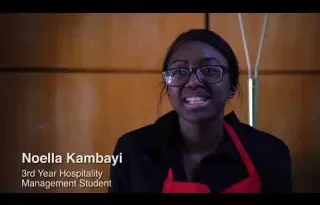
How to apply
Apply on CAO
All standard entry first-year applicants must apply for entry through the CAO. See Important application dates for CAO and information for specific applicant types below:
Advanced Entry & Transfer Applications
Advanced Entry is for applicants who have previous educational achievements and/or work experience and want to be considered for direct entry into year 2, 3, or 4 of a course. This includes students looking to transfer to DkIT from another Higher Education provider.
International Application (non-EU)
International Applicants (not from or living in the EU) can apply through an agent or directly to DkIT to study this course.
Ask us a Question
If you have a question about the BA in Hospitality Management please ask it below and we will get back to you.
Disclaimer: All module titles are subject to change and for indicative purposes only. All courses are delivered subject to demand and timetables are subject to change. Elective Module options will only run subject to student numbers. The relevant Department will determine the viability of each elective module option proceeding depending on the number of students who choose that option. Students will be offered alternative elective modules on their programme should their preferred elective option not be proceeding. Award Options for Common Entry Programmes: The relevant Department will determine the viability of each award option proceeding depending on the number of students who choose either option. If the numbers for one of the Award options exceed available places, students for this option will be selected based on Academic Merit (highest grades).





